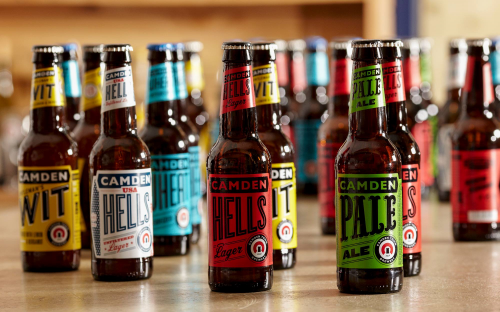According to the Brewers Association, the number of craft breweries in the US has skyrocketed from 1,400 in 2005 to more than 4,000 today. And industry giants like Ab Inbev — which brews Budweiser, Beck’s and Stella Artois — are snapping up small, independent craft breweries.
The more the craft beer industry grows, and becomes more competitive, the greater the need for those pursuing a career in the sector to gain high-level business management skills.
With this in mind, a number of US universities have begun to offer certificates on the business of craft beer.
“All the other programs were about production and technical skills,” says Madeleine Pullman, director of Portland State University’s online craft brewing program, which was launched in 2013.
“We started our program, we filled the first class in a few days and had a huge waiting list,” she says. “There was a huge need.”
One of those students, Jennifer Gregory, moved to Oregon to set up her own brewery, Dragon’s Gate, which specializes in Belgian-style ales. The skills she learnt on the program helped to drive the expansion of her business.
“It’s not all fun and games,” she says, “it’s a lot of work, manual labor and mostly cleaning! But it’s a very rewarding industry to be in.”
When Jennifer was looking craft beer courses in 2014, Portland State’s program was one of a few on offer. Yet as the industry continues to boom, more universities are tapping into the craft beer revolution.
The University of Vermont launches its online certificate program this month. Students will be exposed to a variety of topics including industry history, branding, finance and legal issues related to the marketing and sale of beer.
Gregory Dunkling, the new program’s director, says its creation was in response to demand from a growing local industry looking to recruit staff with sales, marketing and business operations skills, rather than technical knowledge about the science of brewing.
Gregory divides the program’s applicants into two distinct categories — those who intend to launch a brewery in the future, and those interested in employment in the craft industry.
Universities are setting themselves up to become breeding grounds for the next generation of craft beer entrepreneurs.
Giana Rodriguez, program director at the San Diego State College of Extended Studies, says students on its business of craft beer certificate “walk away with a business plan and the knowledge to back it up”.
Michael Peacock, a student turned instructor on the program, is one example. After a 37-year career in the food service industry, Michael applied to the program to fill in his knowledge gaps and expand his network.
“I was motivated by the program to create my own company, TapCraft LLC,” he says. “Financially, prospects are extremely promising. My network of personal and business relationships has gone vertical, along with the industry.”
For Michael, the main advantage of the program is the credibility its certificate brings.
“We have had several students now parlay their certificate into very exciting careers. Without question, having earned the certificate opened doors for them,” he says.
Craft beer is a big deal in San Diego, which is home to more than 100 craft breweries and was recently named the “Top Beer Town” in the US, according San Diego State’s website.
The university’s program differs from most of its competitors, as it is based offline, with classes held on-campus and at local breweries. It offers a multi-dimensional focus on service, brewing and the business side of beer.
And Gina says the course is getting requests from local breweries, restaurants and pubs to hire its students. “The bigger the business gets, the more educated people will need to be.”
The efforts of a number of universities to try to teach students about the craft beer business has mostly been met with excitement and intrigue.
Yet Mark Smith, founder and owner of UK-based American Craft Beer Company, and Nottingham University Business School MBA, is not convinced. “There is no need to go to a ‘craft beer school,’” he argues.
“There is nothing different to selling concrete and craft beer,” he adds. “You have a number of raw materials, you mix them together and come up with something that has more value that the individual elements. Almost every single business operates this way. The craft beer industry is no exception.”
RECAPTHA :
11
34
2d
f4








